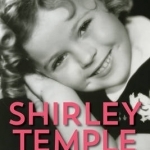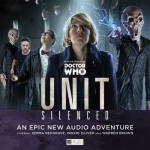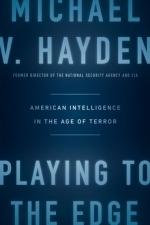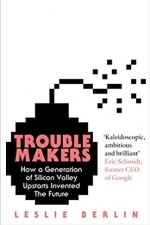Jamie (131 KP) rated 1984 Nineteen Eighty-Four in Books
Jun 4, 2017
Nineteen Eighty-Four was not an easy ready by any means, it’s startlingly brutal. The beginning starts off rather slow as the readers gets to know Winston, the way he thinks and learns about his every day routine and are introduced to key characters. The middle of the book picks up, but it breaks up the pacing of the novel due to the fact that it essentially turns into an essay that outlines the structure of the party and the moral implications of it’s actions. While info dumps can be a bit disjointing to read, I could bear with it for this novel. The third half of the novel caught me off guard and it spun wildly out of control. I loved it, even when I found it difficult to digest. This is what made the book so brilliant, it doesn’t just tell you about right and wrong and then wrap things up nicely, the horrible reality of the book comes crashing down on both Winston and the reader’s head in full force.
The power structure of the party is just downright diabolical. I could think of any other way to describe it; the method of control, the reasons for maintaining such a strict social order, the sheer scale of the party’s reach – all of it was terrifying when taken as a whole. There were points in the second half of the novel where I had to put the book down because it was stressing me out too much, and this was a first for me. I now understand fully what folks mean when they label something as “Orwellian,” and why this novel is hailed as one of the very best of the dystopia genre. Hell, there are others that I read that I thought were bleak, but none quite to this degree. Nineteen Eighty-Four makes other books in the dystopia genre seem like lighthearted adventures novels.
The novel is extremely effective in the delivery of it’s core message about government control and humanity by creating a potential future that is harrowing, particularly because of it’s plausibility, as a warning to all. This is the type of book that will stick with me for a long time and I’m glad I finally sat down to read it.
Cassie Osbourne (6 KP) rated The Secret Countess in Books
Nov 9, 2018
This is the third Eva Ibbotson book that IÕve read this year and, whilst I have enjoyed them all, I canÕt help noticing that the characters are basically all the same. Heroine who seems completely perfect and has no flaws, love interest who is complex and often broody (also the most well rounded character in the book) and the obvious villain who spends the whole book being obviously villainous. All that being said, I do really like these characters. I could relate to Anna despite her perfectness, I understood RupertÕs problems regardless of how blind he was being at times and I enjoyed just how horrible and ruthless Muriel could be. I also loved the side characters. Ollie was adorable, Lavinia was hilarious and Baskerville was strangely well fleshed out for a dog (seriously, Ibbotson gives him a whole personality where most authors wouldnÕt have bothered). Yes most of the characters were simple without huge character arcs but I liked them all the same.
IbbotsonÕs writing style is easy to slip into and nice to read, if a little over fond of commas. However it is the atmosphere that really lets this book down Ñ there isnÕt really too much of it. There are a moments where a small amount is created, and those passages are certainly the most memorable, but there are unfortunately few and far between. ThatÕs not to say that the general feeling is bad or uncomfortable to read when it shouldnÕt be, but I would liked to have seen more of...well, something.
In a similar vein to what I said about the characters earlier, most of IbbotsonÕs young adult literature seems to follow a similar structure. Girl leaves family to do something or be someone that they often donÕt approve of, meets a misunderstood man, they fall in love but he is unavailable (or she thinks he is) and she leaves him without a word but donÕt worry, they are reunited and they all live happily ever after. However, if it ainÕt broke, donÕt fix it. While the main skeleton structure is used for most of her work, each of IbbotsonÕs books have a difference and a charm that stays with you and is memorable. There are plenty of little surprises and some twists and turns.
While this review may seem mixed and sound negative, I did really enjoy this book. I have kept it on my shelves with my other Eva Ibbotson novels for a reason and IÕm sure I will return to it.
Character: 7.5
Atmosphere: 5.5
Writing Style: 9
Plot: 8
Intrigue: 8
Logic: 8
Enjoyment: 8

Shirley Temple: American Princess
Book
At the age of five, Shirley Temple became the world's most famous and acclaimed child-the most...

Silenced
Ken Bentley, John Dorney, Matt Fitton and Jemma Redgrave
Book
Kate Stewart and her UNIT team investigate and confront alien attacks on the planet Earth in the new...

Thunderspace ~ Rain & Thunder
Health & Fitness and Lifestyle
App
During the day, Thunderspace won't let you focus on all the noise around you. And at night it will...

Privatext - Private Text Messaging
Social Networking and Lifestyle
App
Send secure texts and pictures with Privatext, the only reliable way to deliver confidential...

Playing to the Edge: American Intelligence in the Age of Terror
Book
An unprecedented high-level master narrative of America's intelligence wars, demonstrating in a time...
Politics security conflict

Troublemakers: How a Generation of Silicon Valley Upstarts Invented the Future
Book
THE GRIPPING TALE OF THE EARLY FRONTIER DAYS OF SILICON VALLEY FROM ACCLAIMED HISTORIAN LESLIE...

Catcher App, la brocante géolocalisée
Catalogs and Shopping
App
Catcher is THE new free mobile app to bargain-hunt some good deals in your neighbourhood! If you...

Advanced Judo Training
Sports and Health & Fitness
App
A collection of 145 video lessons for the Advanced Judo Enthusiast. Lessons include: 80 Techniques...

